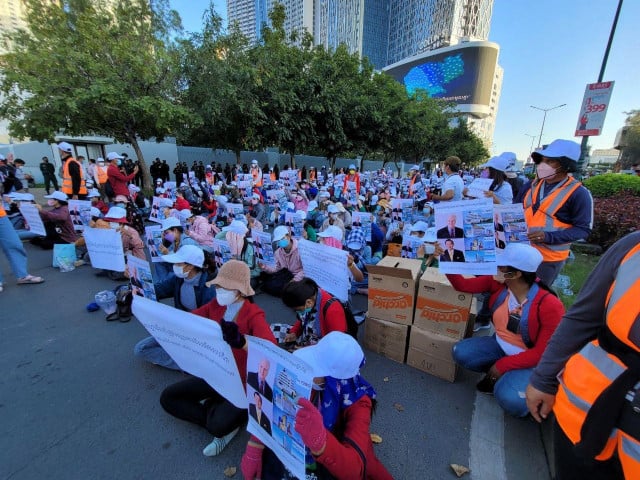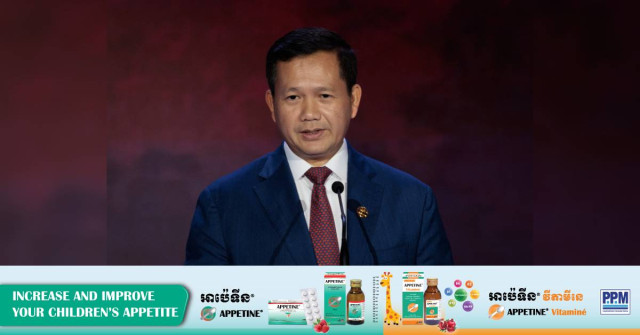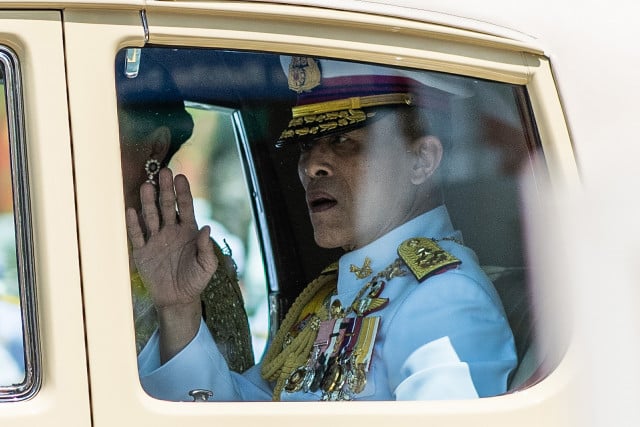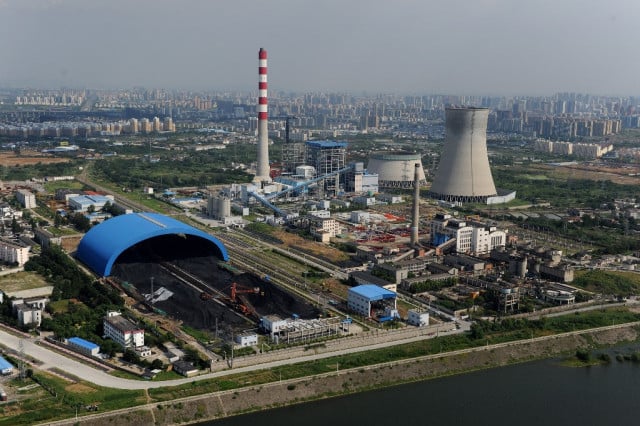Politicians Accused of Ignoring NagaWorld Strikers

- By Lay Sopheavotey
- and Teng Yalirozy
- January 14, 2022 2:26 PM
Parliament members stay away from dispute
PHNOM PENH--For almost a month NagaWorld employees have been on strike but none of the country’s 125 parliament members have stepped up to help solve the dispute, observers say.
Twenty-nine union leaders and strikers have been arrested in the dispute over rights abuse allegations and the targeting of union representatives.
Hundreds of employees have been striking in front of NagaWorld buildings and near the National Assembly since Dec. 18, hoping that national institutions, especially representatives in parliament can help solve the dispute.
Now, social observers and independent politicians are questioning the conflict and asking what the National Assembly members are doing.
Yang Saing Koma, president of Cambodia's Grassroots Democratic Party, expressed his criticism on Facebook, saying candidates saluted the people and asked for support during the election campaign but were nowhere to be seen when elected.
“When they are elected to the parliament, they say the Naga staff members who are in trouble don’t come to them,” he wrote. “But why don’t they go to the people like they did during the election campaign?”
Social observer Ou Virak posted pictures of NagaWorld employees protesting and attached a brief note that thousands of people were in serious trouble. "Hopefully the representatives will pay attention," he added.
Veteran analyst Lao Mong Hay said the representatives in parliament were not fulfilling their duties and responsibilities.
"They represent the whole Cambodian nation and the people in their constituencies but do not give priority to the lives and wellbeing of the citizens,” Hay said.
All the representatives in parliament are from the Cambodian People's Party. There are 12 representatives in Phnom Penh. These are: Lork Kheng, Kim Sovanna, Man Navy, Mak Vansitha, Krouch Sam An, Kep Chuktema, Suon Rindy, Khuth Chandara, Hou Sry, Cheab Sivorn, Pich Kimsreang and Ly Chheng.
Responding to the criticism, Kep Chuktema said there was no reason for him or other representatives to explain their work to the public and the media.
If the citizens have a real problem, as in the case of the NagaWorld strike, they can file a complaint to the National Assembly working group, and the working group will solve it according to the procedure, he said.
“The 12 representatives of parliament are indeed in Phnom Penh, but not all members are always going to solve the problems. The parliament has its own working procedures. Even if we go to solve the dispute, we have no reason to speak about it publicly,” he said.
NagaWorld staff can file a complaint or appoint a representative to meet the parliament working group. Representatives in parliament did not have broad rights because everything had to be done according to the procedures, he said.
Those who asked representatives to help solve their problems must have a letter or a document to file a complaint to the parliament properly.
The National Assembly had in the past received many petitions and helped solve problems for citizens, but Chuktema said he did not remember the cases or how many of them were related to labor disputes.
Korn Savang, survey and advocacy coordinator of Comfrel, said that apart from implementing the law, the representatives of parliament had another role which was to deliver the concerns of the people to the National Assembly.
He said the representatives were the ones who monitored all government actions, including visiting citizens or looking into their problems. The representatives had a duty to investigate the root cause of the NagaWorld labor dispute to find a solution.
Savang said the representatives of parliament in the 6th mandate were nowhere to be seen examining and resolving major issues like those in the previous mandate did.
"In the previous mandate, the representatives from various parties went out to check and question the local people. But in the 6th mandate, the minister has been summoned for questioning only once,” he said.
Representative Hou Sry said his difficulty was that the roles of the representatives in the Phnom Penh constituency were divided by area. He was responsible for Daun Penh district in Chey Chumneas commune.
He said the representatives were from the same party but could not interfere in each other's affairs. If he interfered in other areas, it could create a bad image.
“I can only suggest other representatives go and check the people in their constituencies. But to intervene would be a problem because we are from the same party. It is difficult.”
He said the representatives in parliament were the legislature, not the executive like the government.
Adhoc human rights officer Soeng Senkaruna also noted the inactivity of representatives of parliament from the same party in the sixth mandate. He said that the representatives should come forward to help the underprivileged, especially those who were striking near their workplace.
"The representatives should use their power to intervene. The public's criticism of the inactivity of representatives who ignore people is not wrong,” he said.
Senkaruna wants to see the representatives of parliament use their power to summon government officials to discuss problems, especially ones that cause people to suffer.
Representative Lork Kheng declined to comment, saying she was in a meeting.















